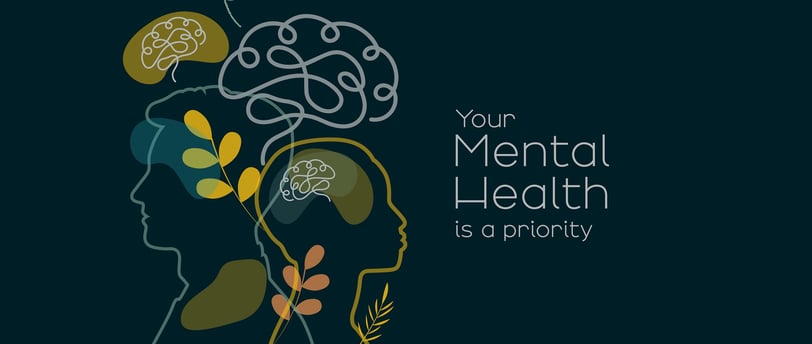The Balancing Act: Why Your Mental Health Deserves as Much Attention as Your Physical Health
This article highlights the crucial balance between mental and physical health, emphasizing their interconnectedness, the hidden impacts of mental health, and practical steps to achieve holistic well-being.
Blessing Emuka, DNP, FNP-BC, PMHNP-BC, APHN-BC, CPN
4/30/20242 min read


The Two Sides of Wellness
When we talk about health, most people immediately think of physical well-being—exercising, eating right, and getting enough sleep. But there’s another equally important side to the wellness coin: mental health. Just as you wouldn’t ignore a broken arm, it’s crucial not to overlook mental health struggles. In this article, we’ll explore why your mental health is just as important as your physical health and how they’re interconnected.
The Hidden Impact of Mental Health
Emotional Well-being: The Invisible Powerhouse
Mental health influences how we think, feel, and act. It affects our ability to handle stress, relate to others, and make decisions. Ignoring mental health can lead to severe consequences, such as anxiety, depression, and even physical health issues. Just as a poor diet can lead to heart disease, neglecting your mental health can have profound effects on your overall well-being.
The Mind-Body Connection
Stress and Physical Health: A Tangled Web
Chronic stress, often stemming from mental health issues, can lead to physical problems like hypertension, heart disease, and a weakened immune system. The mind and body are intricately connected, and when one suffers, the other often follows. By maintaining good mental health, you’re not just nurturing your mind; you’re also protecting your body.
The Ripple Effect of Mental Health
Relationships and Social Health: Beyond the Individual
Mental health doesn’t just affect you; it impacts everyone around you. When you’re mentally healthy, you’re more likely to form and maintain healthy relationships. You can be more supportive, empathetic, and connected to those you care about. On the flip side, mental health struggles can strain relationships, leading to isolation and further mental health issues.
Breaking the Stigma
Mental Health Matters: Changing Perspectives
One of the biggest hurdles in mental health is the stigma surrounding it. Many people feel ashamed or afraid to seek help. It’s essential to break down these barriers and promote open conversations about mental health. Just as you wouldn’t hesitate to see a doctor for a physical ailment, seeking help for mental health should be normalized and encouraged.
Steps to a Balanced Health Routine
Integrating Mental and Physical Wellness
Creating a balanced health routine involves giving equal attention to both mental and physical health. This can include:
Mindfulness and Meditation: Practices like mindfulness and meditation can reduce stress and improve mental clarity.
Regular Exercise: Physical activity boosts endorphins, improving mood and mental health.
Healthy Eating: A balanced diet supports both mental and physical health.
Adequate Sleep: Quality sleep is crucial for cognitive function and emotional regulation.
Professional Help: Don’t hesitate to seek therapy or counseling when needed.
Prioritize Your Complete Well-being
Your health is a multifaceted gem, with mental and physical well-being as its core facets. Prioritizing mental health alongside physical health creates a foundation for a happier, healthier life. Remember, taking care of your mind is not a sign of weakness but a powerful step towards overall wellness. It’s time to give your mental health the attention it deserves—your well-being depends on it.
By understanding and valuing the importance of mental health, we can foster a more compassionate and health-conscious society. So, let’s start today, making mental health a priority in our lives and encouraging others to do the same.
COMMENTS ARE DISABLED FOR THIS POST.
Connect With Us
Explore our range of specialized mental health treatments today.
Contact Us
Contact Form
Email: admin@jraphaclinic.com
Phone: (240) 940-0044
Fax: (240) 940-0055
Home | About Us | Our Services | Our Policies | Blog | Free Resources | SMS Consent Form | Contact Us
___________________________________________
At J. Rapha Clinic LLC, we prioritize your privacy and data security. Please read our Privacy Policy to learn more about how we protect your personal information.
Copyright © 2024 by J. Rapha Clinic, LLC.
Technical problems or suggestions?
Kindly contact Webmaster Nwankama.
Free Resources
Appointment Scheduling*
9221 Colesville Road,
Silver Spring, MD 20910.
By Appointment Only | NO WALK INS
Monday through Friday, 9 pm to 10 pm
Sundays: 9 am to 1 pm.
*Appointment time subject to availability of spots.


